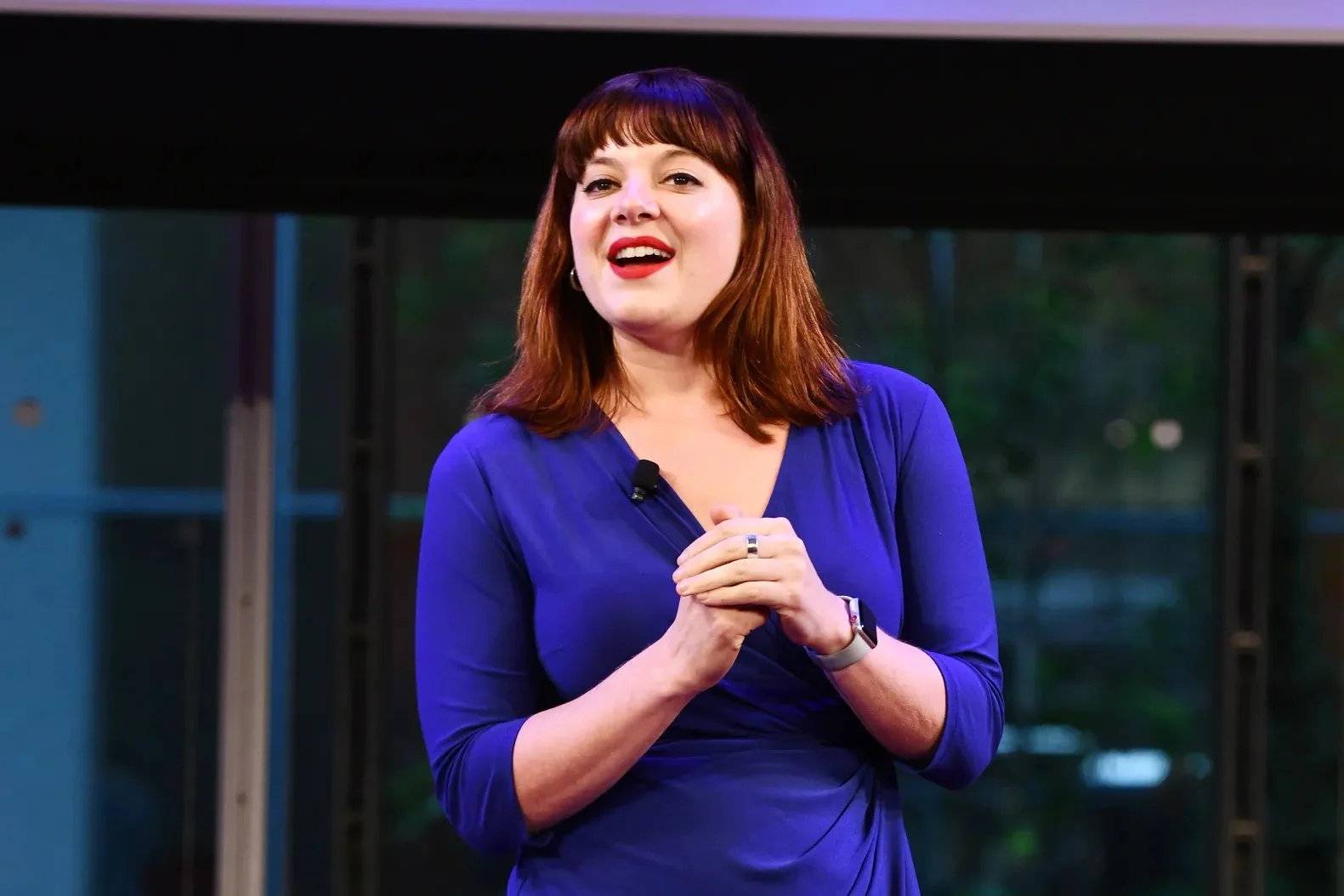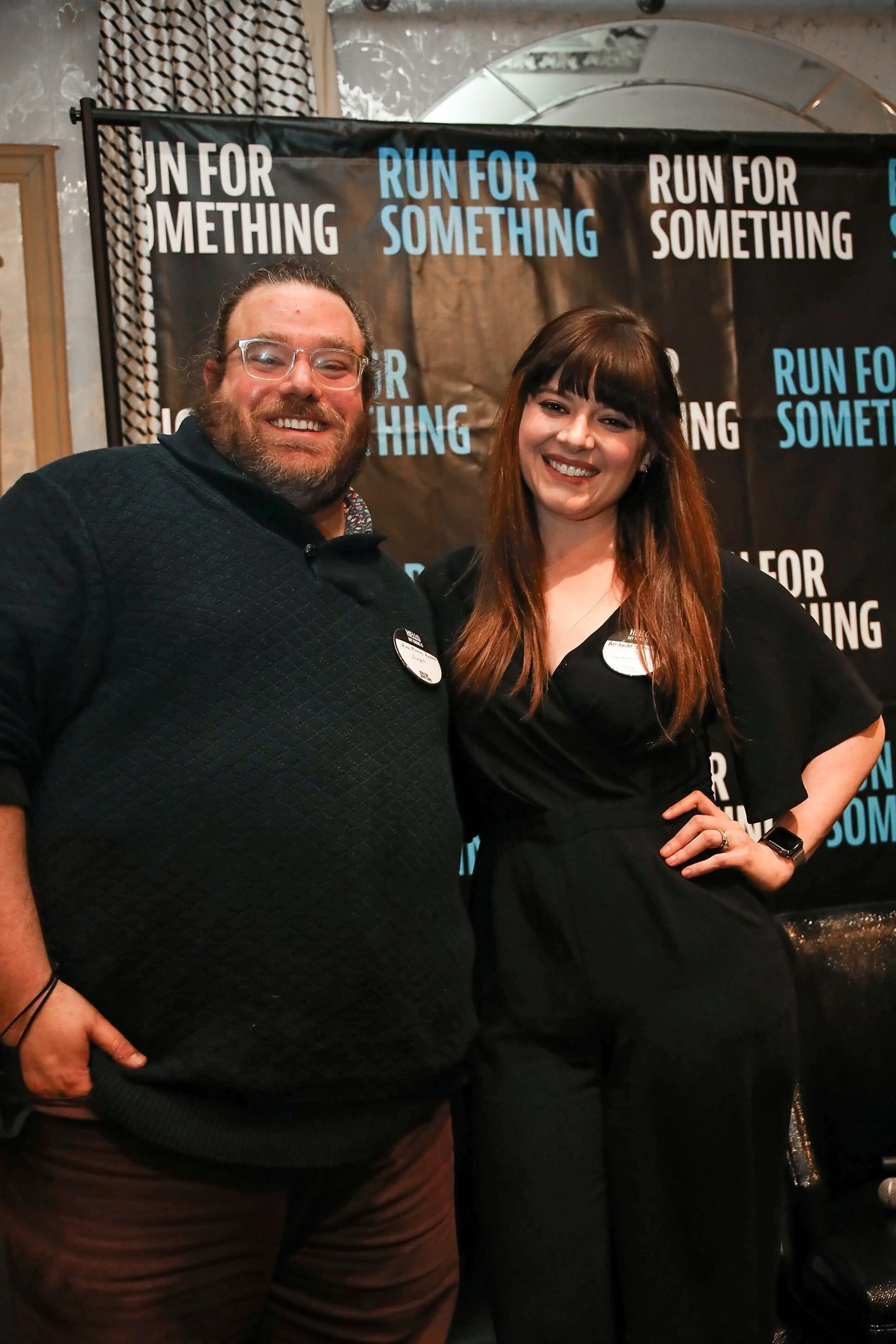In conversation with Amanda Litman
In this energizing conversation, Amanda Litman — author of When We’re In Charge and cofounder and president of Run for Something — shares how skipping class to see Barack Obama speak sparked a lifelong commitment to politics and how that spark became a national movement to reshape who leads in the U.S. She also discusses what it means to build a feminist future through local leadership and how empowering young people—especially women—to run for office can transform both our politics and our culture.
Amanda Litman is the author of When We’re In Charge and cofounder and president of Run for Something, which recruits and supports young, diverse leaders running for local office―since 2017, they’ve launched the careers of thousands of millennials and Gen Z candidates and in the process, changed what leadership looks like in America.
Before launching Run for Something, Amanda worked on multiple presidential and statewide political campaigns. She graduated from Northwestern University and lives in Brooklyn with her husband, two daughters, and their sometimes rowdy dog.
What does being a feminist mean to you?
For me, feminism is about working toward a world in which my daughters can decide they want to be politicians, or artists, or CEOs, or moms, or dog walkers (or any combination of the above) – and whatever choice they make, they can do so with dignity, autonomy, and the structural support a society that sees them as equals.
Getting involved in politics for the first time can be a daunting experience. Can you tell us about your first political experience and what inspired you to get more involved in politics?
I’m a nerd – I’ve simply always thought politics was an interesting and meaningful way to make the world a better place. I spent various summers or semesters as a teenager and into college volunteering by knocking on doors, interning with my local Democratic Party office and on Capitol Hill, and learning through experience that the combination of art and science that goes into the campaign process appealed to me.
The thing that really got me, though, is when during my junior year of high school, I skipped a day of class to go see Barack Obama speak before he announced his campaign for president – I was hooked on the idea that politics could make you feel like you were part of something big.
Five years later, as a senior in college, I got an internship on the Obama re-election campaign – from there, it’s been non-stop professional politics.
Your organization, Run for Something, focuses specifically on empowering progressives aged 40 and younger to seek elected office. Why do you think it is important to focus on this demographic in particular?
Young people are wildly underrepresented in government. The average age in the U.S. House is ~58; the average age in the Senate is ~65. At last count, fewer than 5% of state legislators are under the age of 35; the median school board member is 59.
It’s no wonder that young people feel disillusioned and disconnected from government: Our leaders don’t connect with them and rarely reflect their lived experiences.
The best way to get younger people into higher offices like those is to get younger people into local offices – the school board members and city councilmembers of today are the governors and presidents of tomorrow.
This matters, because as I write about in When We’re in Charge, millennials and gen Z fundamentally lead differently – we’ve got fresh energy, unique communications skills, and a different relationship to power. Our authentic values-driven leadership could be transformative.
You’ve been calling for leaders in Congress over 70 to retire and make this their last term, which mirrors themes in your book When Were In Charge. Why do you think this is an important shift to make?
While everyone is entitled to age with dignity, no one is entitled to age as one of the most powerful people in the country, especially in a moment where we’re in an urgent crisis on many fronts and need to send our best fighters forward.
The longer our present members of Congress stay in office, the less room there is for new blood. Holding onto power indefinitely isn’t leadership—it’s obstruction.
When our older leaders retire now and go out the proverbial front door, they let us all celebrate their legacies and honor the work they’ve done. They can leave with dignity and respect.
If they don’t step aside, especially in this moment, they are likely to face a younger challenger in a competitive primary – and that primary will be centered on why the leader is too old, too out of touch, and unable to deliver for their constituents in this moment. It won’t be fun. Why let that be the way your leadership ends??
More than 200,000 people have signed up to explore a run for office with Run for Something, which is incredible. What trends or sentiments are you noticing among the people who join your programs?
Run for Something candidates all care about solving problems for their communities and they’re willing to do the work. They’re all just totally ordinary (complimentary!!) people willing to consider the extraordinary step of running for office.
We see people from every state, from all kinds of backgrounds and communities, across all races, classes, gender identities and sexual orientations, and all kinds of priorities. This year, we’re especially seeing people sign up to tackle problems like affordable housing, childcare, and to ensure our leaders are willing to fight, not fold.
Finally, because nearly all the people who sign up with us are millennials or gen Z, they almost all embody what I call in When We’re in Charge “next-gen leadership” styles – meaning they’re values driven, authentic, transparent, people-first leaders, and while they take the work seriously, they don’t take themselves seriously. That makes it fun!
Why do you think women are less likely to run for office than men? How can we empower more women to run for elected office?
There are some structural barriers that keep women out of running – things like childcare responsibilities (which, ahem, should be shared between partners anyway), the threat of violence or harassment, and the challenges and mental health hits that come with being a woman in the public eye.
There’s also the internal challenges that many women have told us give them pause – the discomfort with fundraising and self-promotion; the fear that they might be judged for thinking they deserve a position of power or that they’re not qualified and experienced enough to run.
To them and to you, I say: Screw that. You can run. I promise you, mediocre men never ask “am I good enough to run for office?” – they simply throw their hats in the ring and start asking for money. You can do this. There’s an entire ecosystem of organizations like Run for Something and many others who are here to help you do it and will have your back every step of the way.
What next steps would you suggest for those who are interested in running for office one day?
Sign up at runforwhat.net to look up what offices you can run for in 2026. Then join our next intro conference call – we’ll walk you through all the next-steps.
And in the meantime, find a local campaign to start volunteering for. The best way to learn about campaigns is by getting on the ground floor of one in your community!





